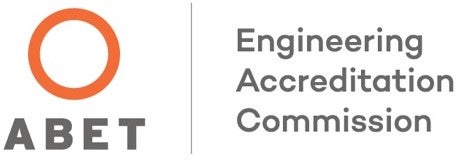Bachelor of Science in Computer Engineering
The aim of HBKU’s Bachelor of Science in Computer Engineering program is to produce globally competitive computer engineering professionals for Qatar, the region, and the wider world.
The program is built on HBKU’s unique model of developing interdisciplinary programs that draw on the expert knowledge of its partner institutions alongside its own faculty. This means that students are able to take courses provided by Texas A&M University in Qatar and Carnegie Mellon University in Qatar, in addition to the comprehensive range of course offerings from HBKU.
Students explore the design of real-world computer engineering systems and are exposed to real-life problems and challenges through a design component that is integrated into the program, as well as through a final-year project.
The dynamic multidisciplinary approach of the curriculum equips the program’s graduates with an exceptionally well-rounded understanding of computer engineering, ensuring that they have all the necessary skills needed for them to go on to explore a wide range of rewarding careers or further study.
Accreditation
The Bachelor of Science program in Computer Engineering is accredited by the Engineering Accreditation Commission (EAC) of ABET. www.abet.org.
A full-time program, taught in English over four years, comprising:
- General educational courses (in humanities, history, and creative arts)
- Mathematics and science courses
- Core computer engineering courses
- Core curriculum electives
- General engineering electives
- English communication electives
The Bachelor of Science program in Computer Engineering is accredited by the Engineering Accreditation Commission (EAC) of ABET. www.abet.org.
The Bachelor of Science in Computer Engineering aims at producing well-educated and globally-competitive Computer Engineering professionals for Qatar, the region and the wider world through the excellence of its faculty, staff, students, facilities, and collaborations locally within Education City and globally.
The Program Educational Objectives (PEOs) are statements that describe what the program graduates are expected to attain in few years after graduation. For the Computer Engineering program at HBKU, the PEOs are as follows:
- Demonstrate mastery of computer engineering fundamentals in practical industrial settings and continue to develop creative design skills and technical depth to solve problems in diverse range of professional careers that span across disciplines;
- Pursue their intellectual development through continuous learning such as professional development and graduate education;
- Demonstrate effective teamwork, leadership and communication skills in practical industrial settings;
- Practice their career with a high degree of professional ethics, and contribute to their local and professional communities.
The Student Outcomes for the Computer Engineering program are listed below. The program faculty decided to adopt the ABET student outcomes. The program is committed to providing an educational experience in which students who successfully complete the program attain the following student outcomes:
- an ability to identify, formulate, and solve complex engineering problems by applying principles of engineering, science, and mathematics
- an ability to apply engineering design to produce solutions that meet specified needs with consideration of public health, safety, and welfare, as well as global, cultural, social, environmental, and economic factors
- an ability to communicate effectively with a range of audiences
- an ability to recognize ethical and professional responsibilities in engineering situations and make informed judgments, which must consider the impact of engineering solutions in global, economic, environmental, and societal contexts
- an ability to function effectively on a team whose members together provide leadership, create a collaborative and inclusive environment, establish goals, plan tasks, and meet objectives
- an ability to develop and conduct appropriate experimentation, analyze and interpret data, and use engineering judgment to draw conclusions
- an ability to acquire and apply new knowledge as needed, using appropriate learning strategies
For the Computer Engineering program, the following table highlights student enrollment and graduation numbers since the program inception in 2015.
| Year | 2016-2017 | 2017-2018 | 2018-2019 | 2019-2020 | 2020-2021 | 2021-2022 |
|---|---|---|---|---|---|---|
| Students Enrolled | 32 | 31 | 39 | 45 | 46 | 49 |
| Students Graduated | 2 | 8 | 13 | 5 |
- The cross-disciplinary aspects of computer science and electronic engineering.
- A thorough understanding of computing devices, systems, and tools, ranging from specialized embedded processors to communication networks to software development.
- The skills needed to design a computer-based system.
- The application of mathematics in engineering.
- The role of hardware and software tools in solving engineering problems.
- Ethical and professional responsibility in computer engineering.
- The role of computer engineering and of computer engineers in society, both at a local and a global level.
Applicants seeking admission to the Bachelor's Programs should have a strong high school academic record with evidence of advanced coursework in math and science. Applicants are required to take the IELTS or TOEFL exam in order to demonstrate their proficiency in the English language. Applicants are highly encouraged to take the SAT or ACT exam.
For more information regarding admission requirements visit the following link
Fees and Financial information
| Program | Program Tuition Fees | Program Duration |
|---|---|---|
|
Bachelor of Science in Computer Engineering |
292,000 |
4 years |
Typically, grade assessments are based on a final examination, mid-term examinations, quizzes, and assignments that include project and/or laboratory work. Credits are earned semester-by- semester, of which there are eight (two per year, spread across four years).
Each student is required to complete a final year project as a member of a team of two to four classmates. The goal of this project is to give students the opportunity to integrate and synthesize the theoretical and experiential knowledge they have built up over the duration of the program.
The final-year project is conducted under the supervision of faculty.




